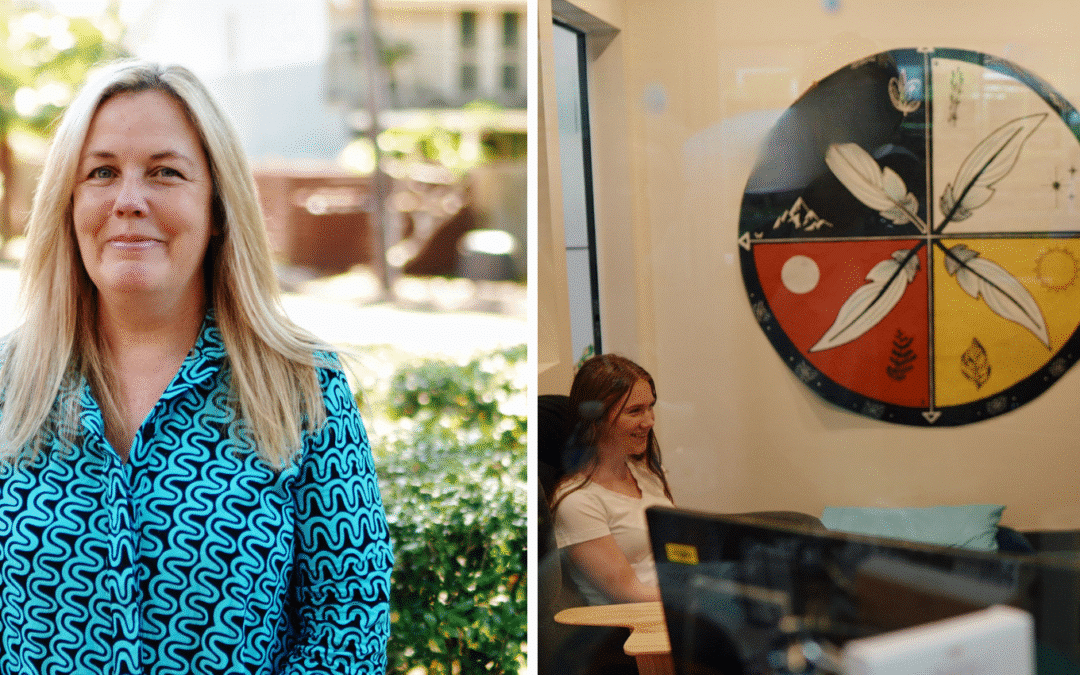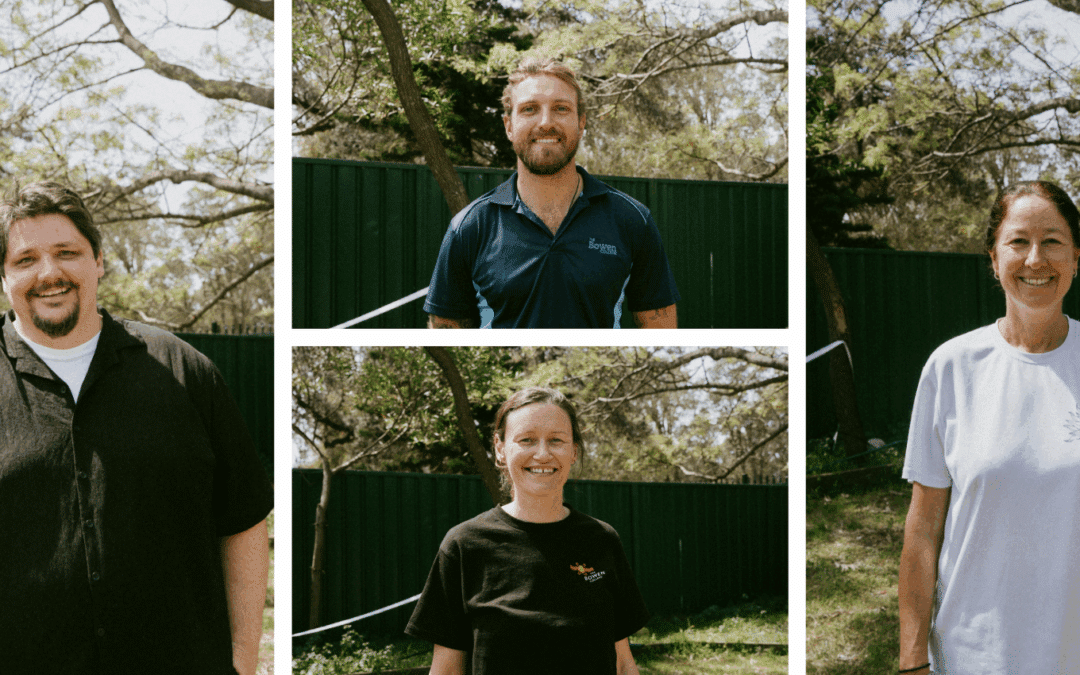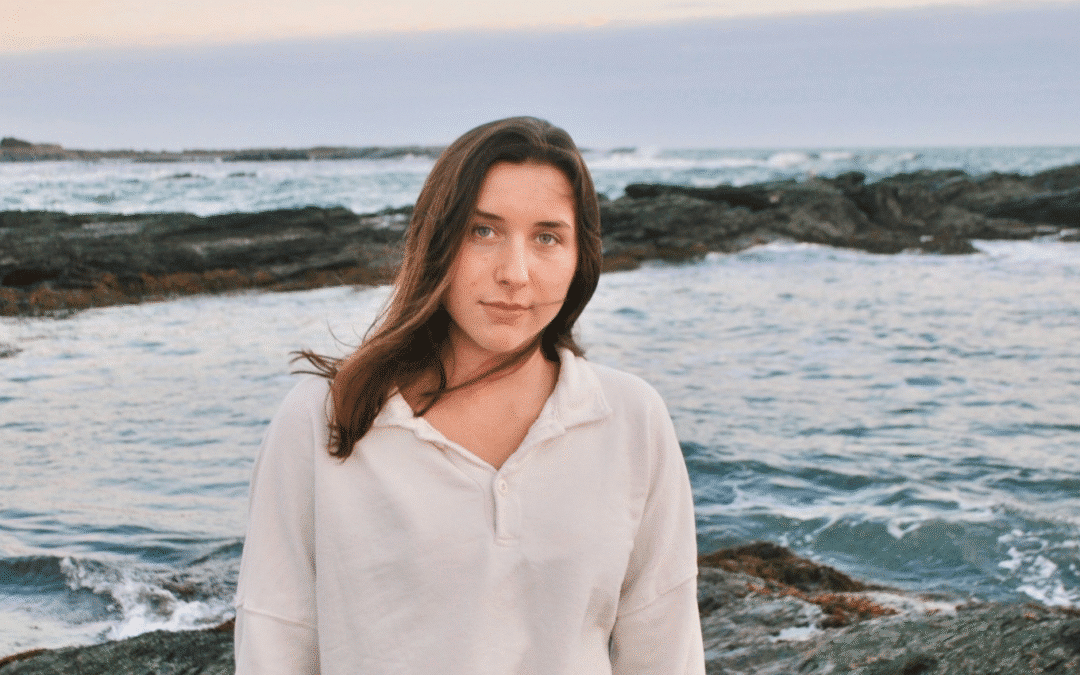Leo* was referred to Youth Off The Streets’ First Nations Services in Dubbo in November last year.
His referral followed a Youth Action Meeting (YAM) – monthly forums led by the NSW Police Force, bringing together local government, non-government agencies and key services including NSW Health, the Department of Education and Department of Communities and Justice. These meetings aim to identify vulnerable young people at risk of offending and develop practical, coordinated strategies to connect them with the right support services to help them build safer, more positive futures.
Empowering the next generation: Revisiting our NAIDOC cultural camp
At just thirteen years old, Leo was one of the young people identified. Disengaged from school, experimenting with alcohol and other drug use recreationally, as a coping mechanism of underlying trauma from displacement and existing health conditions such as fetal alcohol syndrome disorder, he was “going down a really dark path”, says his Youth Off The Streets caseworker, Brooke.
From the outset, Brooke focused on re-engaging Leo with his education. Despite strong collaboration with his school principal, Leo’s behaviours remained disruptive and it was agreed that a fresh start in a new school would be in his best interests. This new environment, designed to support young people with complex needs, has proven invaluable – Leo has now been attending consistently for several months.

“When they’re engaged in culture, when they’re connected back to their roots, their mental health improves so much,” says First Nations Services caseworker, Brooke.
Education alone, however, was not the full picture. Brooke also identified underlying health concerns contributing to Leo’s struggles. Although diagnosed with ADHD years earlier and briefly prescribed medication, Leo had not seen a psychiatrist in nearly a decade, leaving his condition unmanaged. Through Youth Off The Streets’ connection with YAM, Brooke secured mental health assistance from Headspace. Today, Leo has a mental health care plan and has begun sessions with a psychologist – a critical step towards stability and wellbeing.
There is no connection without culture
Even with this solid progress, the path forward has not been without some setbacks. In recent months, Leo’s father, his primary carer was incarcerated, forcing Leo to move in with his aunt – causing additional kin disruptions and lack of role models. Around the same time, Leo himself was apprehended for attempting to steal a car, leading to a Youth Justice Conference. Throughout the upheaval, Brooke was there to support him.
Amid these challenges, the consistency of Youth Off The Streets’ outreach programs and cultural engagement has been a stabilising force for Leo. When asked what he values most, he is quick to say, “boxing and the cultural programs,” highlighting both the physical outlet and the connection with other First Nations young people.

Left: Brooke, Leo’s caseworker; Right: Uncle Max with a few of the First Nations children and young people Youth Off The Streets supports.
“Any time we’ve had the kids ‘painted up’, anything cultural, he’s right there,” says Brooke. “He loves it. It’s not a chore – it’s something he genuinely wants to do. And it’s had a positive impact on him.”
Uncle Max, a respected Elder working with Youth Off The Streets, has also become an important influence. In First Nations communities, Elders are the custodians of culture, wisdom and history – and their guidance commands respect. “The kids listen to him,” Brooke says. “He’s hard but fair, and that’s exactly what they need sometimes.”
Are you looking for First Nations cultural support? Learn more here
It was Uncle Max who suggested starting weekly boxing classes at the local PCYC. “A lot of the kids carry anger,” he explains. “We wanted to give them a safe space to let it out on a punching bag, instead of on their parents or guardians – and a bit of fitness, too.”
All First Nations young people who access Youth Off The Streets’ services complete a culturally-validated psychometric assessment, reviewed every six-to–eight weeks to track progress and monitor risks. As Brooke notes, “when they’re engaged in culture, when they’re connected back to their roots, their mental health improves so much.”
Leo’s journey is ongoing, but thanks to the combination of education, health support, cultural connection and trusted relationships through Youth Off The Streets, he is beginning to rebuild hope for a more positive future.
*Name and image changed to protect the privacy of the young person.



